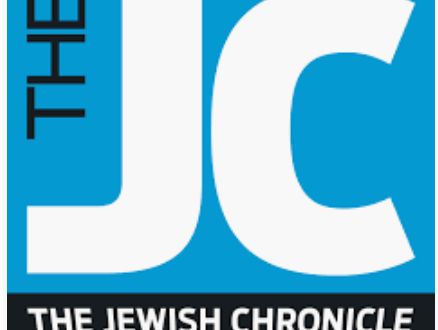Much of last night’s discussion sought to bring out symmetries between the two hatreds under discussion, anti-Muslim bigotry and antisemitism. Freedland and Hasan both presented themselves as critical friends of their communities, raising the difficult questions some would rather not tackle, while still remaining insiders. There are certainly parallels between the abusive comments and charges of disloyalty each man attracts – Freedland has been accused of being a kapo and Hasan of being a sell out.
But there was some lack of symmetry in the discussion. Antisemitism, its possible causes or triggers, and its relationship with antizionism, was discussed in detail. Criticism of Israel was (usefully) distinguished from antizionism, which in turn was differentiated from antisemitism. It was agreed that ‘Zionist’ was sometimes used as a codeword for ‘Jew’ in a way even anti-zionists might acknowledge to be antisemitic. It was Hasan, I think, who asked whether there was not a possible tension between asserting a strong tie between Jews and Israel, and insisting that British Jews could not be asked to account for Israel’s actions. Freedland explained that the bonds between the British Jewish community and Israel did not necessarily equate to support for its government or its actions. This was a good point – I drew a parallel with Hasan’ attitude towards Iran (a topic touched on last night) – he seems to take a rather protective interest in Iran but is also a pretty outspoken critic of its policies. However – I began to have the sense that, while antisemitism was being framed (of course) as unacceptable, so was a more robust (as opposed to Yachad-style) support for Israel.
The phenomenon of anti-Muslim bigotry, or Islamophobia, seemed probed far less searchingly. Hasan freely acknowledged that there was a difference between out and out bigots and those with legitimate concerns – but his example of a legitimate concern was the so-called Islamic State. That left an awful lot of unexplored middle ground. Many who oppose ISIS themselves support (ideally) penalties for apostasy, blasphemy and homosexuality. Mehdi Hasan has himself condemned such punishments – so it would hardly have been a hostile act to probe him a little further on such issues, unpacking the difference between reasonable and bigoted ways of expressing anxieties about theocratic and illiberal tendencies. But I wasn’t too surprised that Jonathan Freedland didn’t push on this.
Some statements about the two hatreds might have been challenged. Mehdi Hasan insisted that the media is Islamophobic – I accept this is true of many tabloids, and of some centre right columnists in the Spectator and Telegraph. However the Guardian suffers from the opposite problem, as evidenced for example in its poor and partial coverage of the ‘Trojan Horse’ issue. It was also asserted (I think again by Hasan) that UK politicians did not make antitsemitic statements. Freedland perhaps hinted at a counter-argument when he spoke later of the worrying way in which people misused the Holocaust (a worry echoed by Hasan). But I don’t think any mention was made of the fact that several politicians (including a disproportionate number of Lib Dems) seem happy to flirt with antisemitic tropes.
In a further assertion of symmetry between these ‘hatreds old and new’, Hasan and Freedland both differentiated themselves from outliers in their communities – out and out anti-zionists on the one hand and Quilliam types on the other. But this seemed a slightly problematic parallel. There is a category difference between anti-Muslim bigotry and antisemitism, because Islam is a religion, whereas Jewishness has both a racial and a religious element. And in fact Zionism seems far more central to modern antisemitism than Judaism, so it seems reasonable to compare the communities’ outsider figures in relation to these two ideas – i.e. Zionism and Islam. Whereas anti-zionists reject Zionism completely, the Muslim outliers mentioned last night (such as Irshad Manji) do *not* reject Islam – they are not ex-Muslims, but in fact identify as Muslim. So Maajid Nawaz, for example, is perhaps less a Tony Greenstein than a Peter Beinart, or even a Jonathan Freedland.
A further asymmetry was thrown up right at the beginning of the evening when the moderator, Anita Anand, quizzed Mehdi Hasan briefly about the infamous ‘cattle’ clip. I didn’t think it was particularly necessary to raise this myself, and it must be wearisome having it brought up again and again by people who never acknowledge that Hasan has since eloquently countered illiberal Muslim regimes and views. Hasan partly deflected and partly apologised for his earlier statements. He also admitted that he’d said some rather unkind things about atheists, before remarking drolly that Richard Dawkins stress-tested his new found tolerance. I laughed. But it’s difficult to imagine someone at a HuffPo/Guardian event making a similarly semi-facetious confession of anti-Muslim bigotry.
At one point, an opportunity to draw out a symmetry was lost. Anand asked whether the two journalists didn’t sometimes feel they were handing ammunition to the far right. Mehdi Hasan agreed that it was frustrating to see his criticisms of the Muslim community picked up gleefully by bigots in support of their arguments. Freedland described feeling a similar irritation at having fierce opponents of Israel suddenly invoking him as an authority (following his sharp criticisms of Operation Protective Edge) even though normally they’d shun him as an evil Zionist. What was missing here was an acknowledgement that whereas Hasan’s words would be weaponised by the right, I’m pretty sure Freedland’s opponents were on the far/’progressive’ left. (Admittedly it can be difficult to tell sometimes.)
Although I had some criticism of the discussion, it was in many ways a positive event. Mehdi Hasan spoke well at the beginning of the evening about the importance of accepting differences of opinion without jumping to an assumption of bad faith, or immediately turning against the person one disagrees with. (As someone who has spoken out many times against anti-Muslim bigotry he has been understandably vexed by some Muslims’ extreme hostility to his more self-critical pieces.) Freedland was robust on the need to hold antisemites, not Jews, responsible for racism, and spoke bitterly about those who thought Jews, rather than those who persecuted them, had lessons to learn from the Holocaust. Hasan engaged sincerely with his concerns – people may define antisemitism (and anti-Muslim bigotry) differently without being insincere in their dislike of it. The discussion was courteous and good humoured, and Anita Anand was an engaging and effective moderator.


